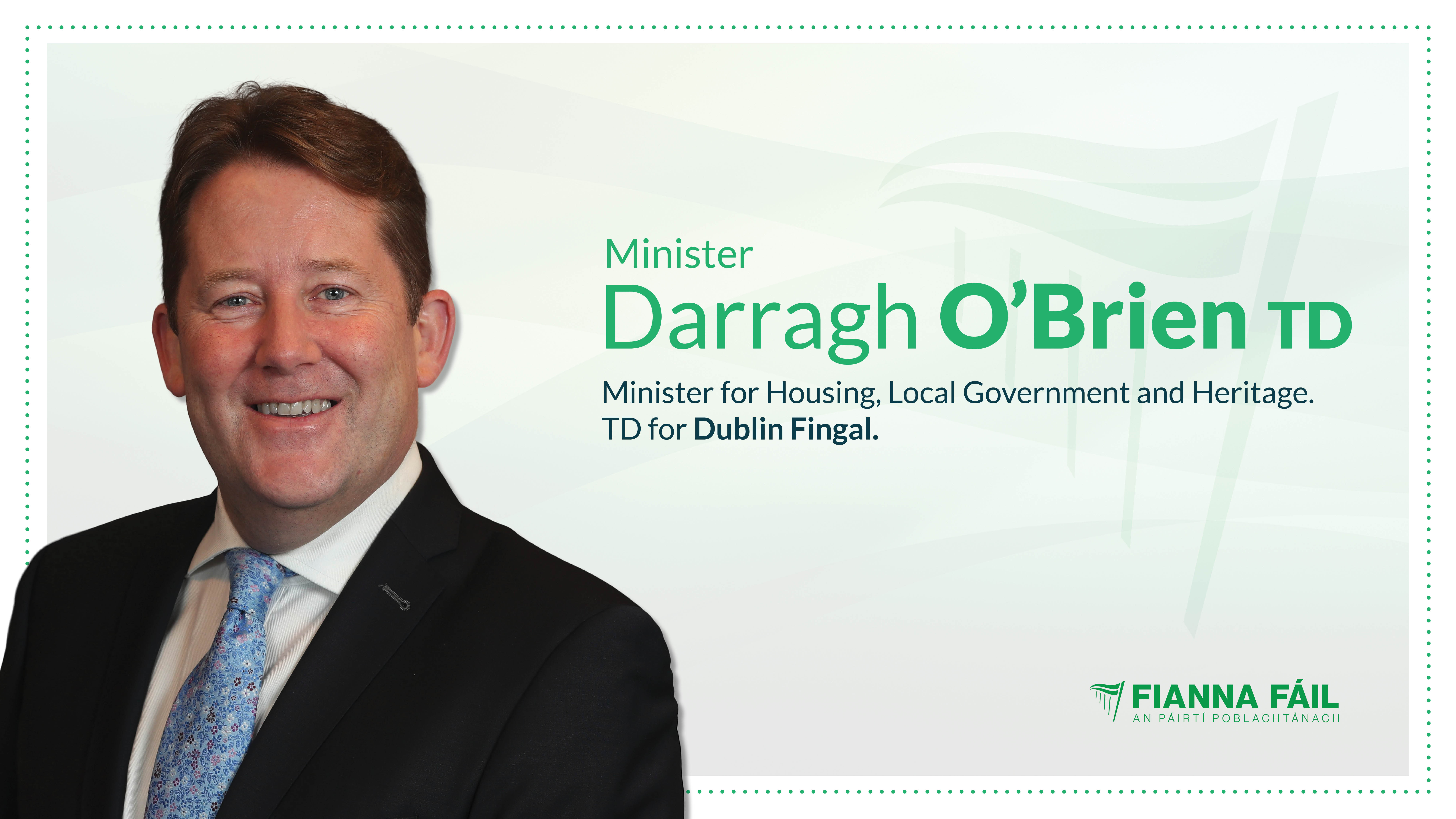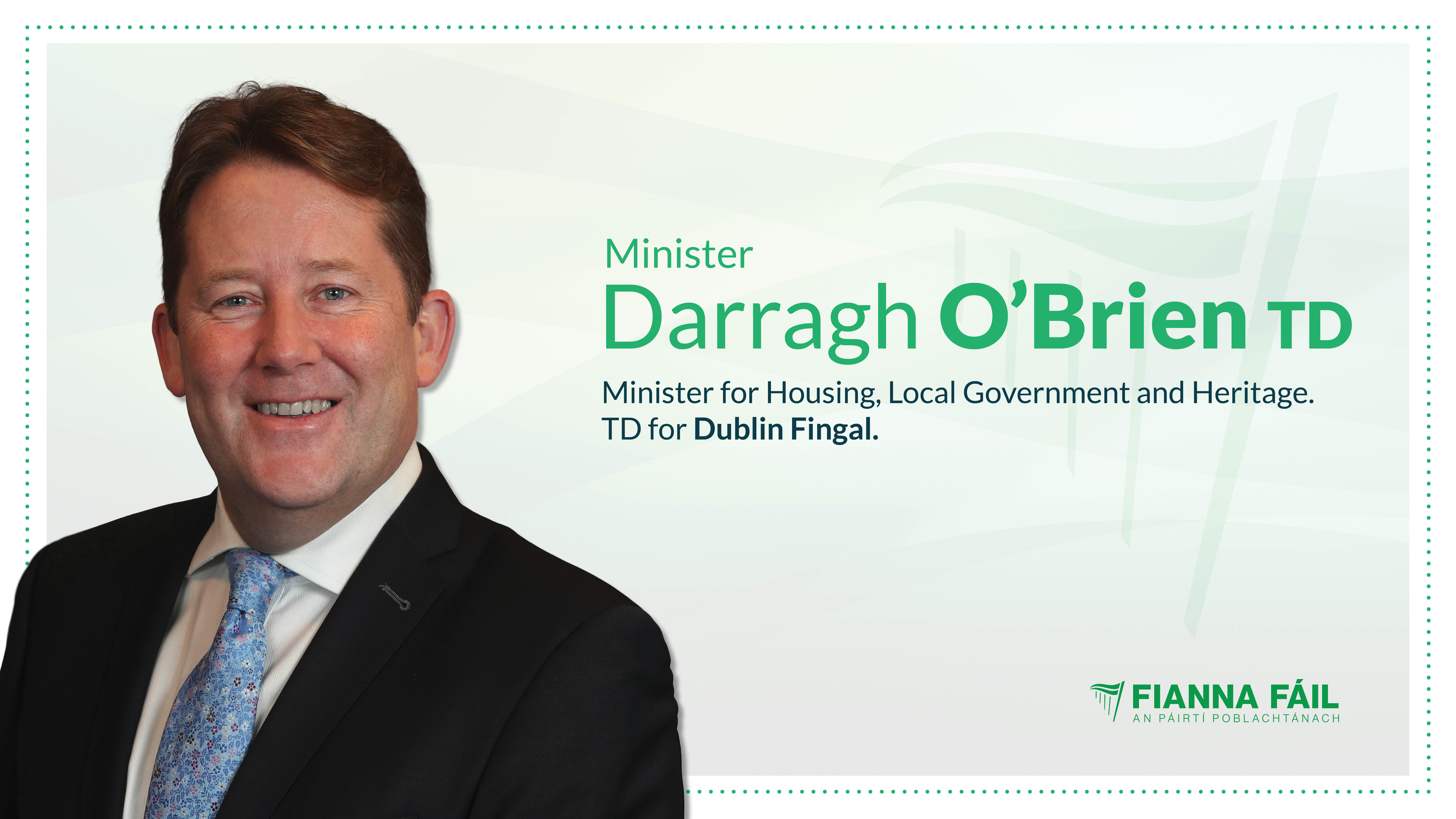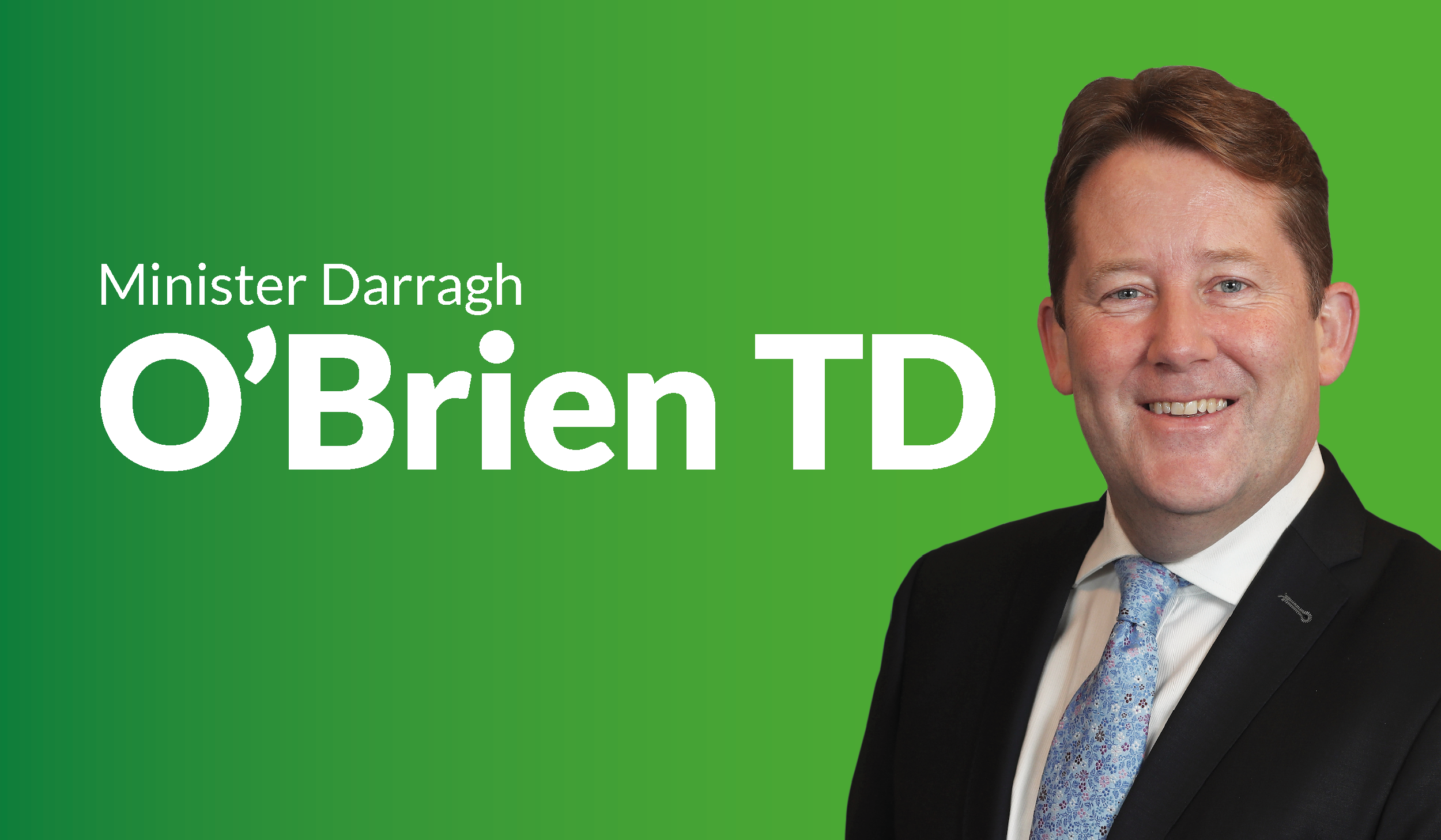Minister O’Brien announces €130 million for Regeneration Projects in Mid-West
Published on: 19 March 2021
The Minister for Housing, Local Government and Heritage, Darragh O’Brien TD, today announced €130 million in funding for four regeneration projects in the Mid-West investment region of Clare, Limerick and Tipperary. The projects are being funded under ‘Call 2’ of the Urban Regeneration and Development Fund (URDF). The URDF part-funds projects aimed at enhancing urban areas to make them more attractive places in which to live, work, visit and invest. The three local authorities, which will deliver these multi-annual projects, will receive this funding.
The projects for which URDF support have been approved are:
· Ennis Town Centre Public Realm Regeneration (Clare County Council) – €4.04 million
· Worldclass Waterfront (Limerick City and County Council) – €73.4 million
· Living Limerick City Centre Initiative (Limerick City and County Council) – €42.61 million
· A Pathway to a Low-Carbon Society: A Centre for Excellence for Sustainable Energy for transformational urban regeneration of Nenagh Town Centre (Tipperary County Council) – €9.52 million
The Department will now contact the local authorities on the next steps regarding funding. All selected projects support the National Planning Framework’s ‘national strategic outcome’ of compact growth, a particular focus of the second call for URDF proposals. The URDF aims to facilitate a greater proportion of residential and commercial development, supported by infrastructure, services and amenities, within the existing built-up areas of larger urban settlements.
Announcing the provisional funding allocations this morning, Minister O’Brien said: “This funding will support projects in the Mid-West that will enhance the quality of life for many people. The projects are all about making these areas even more attractive places in which to live, work, visit and invest.
“The projects I have announced funding for today have a broad mix of objectives that support the Government’s national planning aims. The project in Ennis will help create a more attractive pedestrian environment, thereby helping improving quality of life for those who live, work and visit the town.”
“Both Limerick projects are extremely exciting and will result in new opportunities such as a digital innovation cluster and a world-class waterfront along the Shannon.
The Living Georgian City Programme will focus on creating new economic opportunities from derelict buildings in a city that has seen high levels of buildings vacancy over the years.”
“Everyone’s future is low-carbon and the funding I am announcing for a centre of excellence for sustainable energy in Nenagh will marry the twin aims of sustainability and economic opportunity. The new centre of excellence will help the national transition to a low-carbon future, one of the Government’s national planning aims. It also has the potential to create hundreds of jobs, providing economic stimulus to Nenagh.”
“Overall, I believe this funding can be a catalyst for regeneration, development and growth. It will also provide much-needed economic stimulus and job creation in the Mid-West as our economy emerges from the depths of the pandemic.”
“Compact growth was the focus of this round of URDF funding. The projects the Government is funding are geared towards sustainable growth of our urban settlements, supported by jobs, houses, services and amenities, as envisaged by the National Planning Framework – in that sense the URDF is a unique approach to Government funding. Whilst many Government-funded programmes are for specific types of projects, the URDF funds a diverse set of integrated projects with integrated aims. I look forward to working with Clare, Limerick City and County, and Tipperary County Councils to progress these important projects.
The Minister concluded: “I understand there will be some disappointment in terms of projects which were unsuccessful and my Department will engage with local authorities and provide feedback in respect of unsuccessful proposals.”
The projects were chosen after a rigorous assessment process, overseen by a project advisory board consisting of Government departments, State agencies and national and international experts in areas such as building, architecture and planning. In total, the department received 76 project proposals. Each local authority submitted at least one application. Today’s announcement honours the Programme for Government commitment to continue the URDF.


